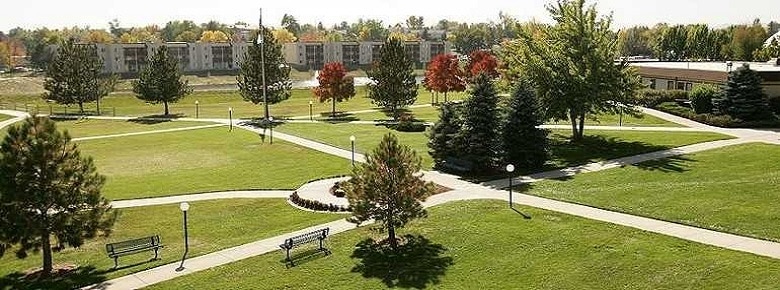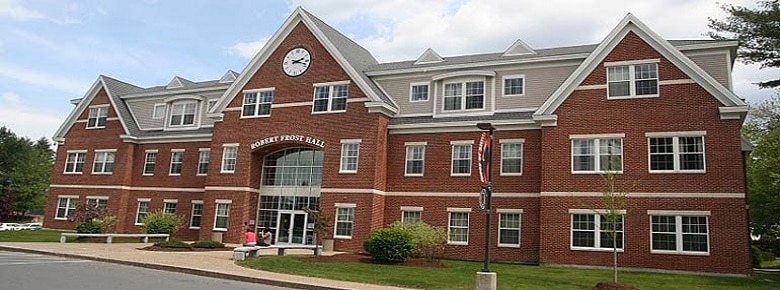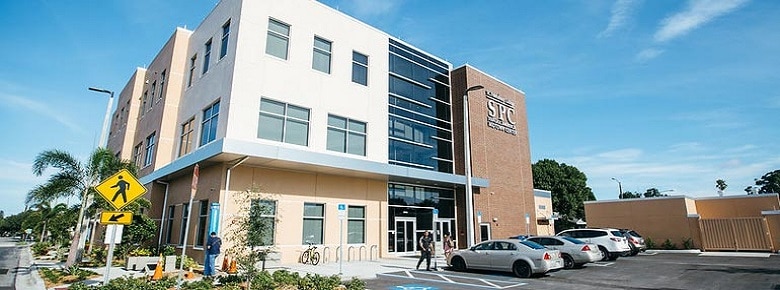If you’re interested in pursuing your online associates degree in information technology, now may be an excellent time to do so. There are numerous colleges offering online information technology degree programs.

Editorial Listing ShortCode:
These programs often provide a lot of flexibility and can help make it convenient to earn your online associate degree.
Online Associates Degree in Information Technology

When considering a degree in information technology, there are a few different areas you can choose from. It’s important to consider exactly what you hope to do with your degree once you’ve earned it. Would you prefer to develop software, or does protecting a company’s private information sound more appealing?
Answering these questions can help make it simpler to choose a specialty you’ll enjoy. Here are some degree fields in information technology you can consider. You can click on the links below to jump to the field that most interests you.
Although there may be some crossover between these information technology specializations, there are some important distinctions to consider.
Information Technology – General IT

A general information technology degree is a wide overview of the information technology field. It covers all aspects of IT, including the other specializations. While you won’t learn as much about those specializations as you would if you concentrated specifically on one of them, you should learn the basics.
You’ll likely take classes on database management, cyber security, computer programming, and software development.
Editorial Listing ShortCode:
Earning this degree can help you learn the skills needed to troubleshoot programs, operating systems, computers, and networks. Common topics studied include how to install programs, administer updates, set up and maintain networks, and help others with their various computer problems.
For those interested in becoming database/systems administrators, computer systems analysts, network administrators, information systems managers, IT techs, or IT specialists, this degree can help. Many people who work in IT call centers, IT departments within companies, or on IT squads hold associate degrees in general IT.
Information Technology – Cyber Security

Another important component of information technology is cyber security. As more and more of our personal information moves online, the need for cyber security experts only grows.
In 2005, the Bureau of Justice Statistics reported that over 67% of businesses had experienced instances of cybercrime, hacking, and other cyber-related attacks. That number has only grown since then.
A cyber security specialization can help you learn how to protect individuals, companies, and even the government against hacking and cyberattacks on their digital devices.
Editorial Listing ShortCode:
This might involve designing software that safeguards and preemptively avoids these types of attacks, stopping the attacks once they happen, or helping victims recover their stolen, deleted, or otherwise damaged data after an attack has happened.
The main focus of most cyber security curriculums is ethical hacking skills. This means learning many of the same techniques malicious attackers employ against their victims.
Learning these techniques can help you learn how to turn away attackers and block future attacks. Potential jobs include security analysts, cyber security specialists, and network security analysts.
Information Technology – Network Administration

A career in network administration is a rewarding employment option for many. Network administrators are responsible for ensuring companies’ networks are safe, secure, fast, and as up-to-date as possible. They oversee the wi-fi connections, updates to software and hardware, security, and so much more.
The curriculum for this specialization typically contains courses on operating systems, cyber security, IT troubleshooting, web development, computer programming, and network principles. The most common job for someone with this degree is network administrator, but it isn’t the only possibility.
Editorial Listing ShortCode:
This degree program can also help you develop the skills and knowledge needed to get a job as an information security analyst, database administrator, systems or network architect, systems analyst, or even a software developer. This is due, in large part, to the broad course curriculum.
Information Technology – Software Development

Software development curriculums typically have many information technology components in them.
They also usually have many computer programming and software development courses, as well as courses in electrical engineering. They primarily cover the most current and innovative techniques in both programming languages and computer programming.
Generally, all information technology degrees are typically best tackled by those who are analytical, detail-oriented, and hyper-focused. This is especially true for degree programs in software development.
Editorial Listing ShortCode:
A software development program can help you become adept at developing your own computer software and maintaining the software created by you and others.
In addition to employment opportunities in software development, other common fields after earning this degree include mobile apps development, software engineering, and programming analysis.
IT Associates Degree Curriculum & Courses

Your classes will vary depending on the program you take, but no matter the specialization you choose to pursue, there are several classes you’ll likely be required to take while working towards your degree.
- General Education: Most associate’s degree programs require general education classes. These are classes such as public speaking, English comp I & II, math, history, and science.
- Introduction to Business: This is an introductory class that provides a broad overview of the business world. It typically covers finance, marketing, business communication, and other business-related basics.
- Introduction to Information Technology: This course is a general overview of the information technology field. It typically touches on all information technology subjects but doesn’t go too in-depth into any of them.
- Computer Programming Design: This class is an introduction to the most common programming languages and the basic skills and knowledge needed for use in programming.
- Introduction to Relational Database: This course covers what databases are, how to design them, how to connect them to different programming languages, and other database-related topics.
- Introduction to Networking: This is a fundamentals class about computer networking. It discusses what computer networks are, how to build and maintain them, and how to keep them secure and working at peak performance.
- System Analysis and Development: This course covers how to design and analyze business systems. It also discusses the most common tools, skills, and methods used in system development.
- Web Design and Development: This class discusses front-end, back-end, and full-stack web development. This class can give students opportunities to gain experience in designing, building, and maintaining websites.
- Precalculus: Computer science degrees and higher math go hand-in-hand, so most information technology programs require students to take math at least as high as precalculus. You’ll likely review algebra and trigonometry before getting fully into pre-cal.
- Computer Systems Security: This is a basic cyber security class. It covers the foundations of cyber security and how to protect private information in digital form.
This list is only a small portion of the classes you’ll likely be required to take. If you choose a specialization, that should partially determine your other classes.
Associate’s in IT Careers & Salaries

According to the U.S. Bureau of Labor Statistics, the projected growth for computer and information technology occupations is 13% through the next ten years.
With this in mind, it may be a great time for you to earn a degree in information technology. Even at the associate’s degree level, the job opportunities are typically numerous, and the pay is usually good.
According to the U.S. Bureau of Labor Statistics, these are some of the highest-paying careers in the field of information technology:
| Careers | Annual Median Salary |
| Computer Network Architects | $116,780 |
| Software Developers, Quality Assurance Analysts, and Testers | $110,140 |
| Information Security Analysts | $103,590 |
| Database Administrators and Architects | $98,860 |
| Computer Systems Analysts | $93,730 |
| Computer Programmers | $89,190 |
| Network and Computer Systems Administrators | $84,810 |
| Web Developers and Digital Designers | $77,200 |
| Computer Network Support Specialists | $65,450 |
| Computer User Support Specialists | $52,690 |
For those who may be wondering if an associates in information technology is worth it, these salaries may help clear things up. Though some of these jobs may require bachelor’s degrees to obtain, many of them can potentially be achieved with just an associate’s degree.

As you can see, the lowest-paying job on the list pays on average $50,000 a year, which is higher than the annual salary for the average working American.
Editorial Listing ShortCode:
This means jobs in the information technology field are typically both lucrative and competitive. You can help set yourself apart from self-taught computer programmers and engineers simply by having an associate degree listed on your resume.
An associate’s in information technology can also help you build a strong foundation if you decide to pursue your bachelor’s degree later.
Online Associates Degree in Information Technology Career Paths

Of all the potential careers you could have with an information technology associate’s degree, there are a few that are more commonly obtained than others. These are jobs in which the typical entry-level requirements include having an associate’s degree.
Computer Support Specialist
Computer support specialists minimize the time people lose to computer, network, and internet malfunctions. You could potentially work for a single company in the technology support section, for a dedicated computer support company, or as an independent contractor.
Database Administrator
Database administrators are responsible for ensuring the safety and privacy of sensitive data stored on company databases. This could include such information as credit card information, customers’ addresses, and personal identifying information.
IT Specialist
An IT specialist is similar to a computer support specialist. The main difference is that an IT specialist almost exclusively works in the IT department of a specific company as opposed to working as an independent contractor or within a company of support specialists.

Network Administrators
Nearly all companies, both small and large, have computer networks, so a career in network administration is typically a fairly safe choice. Network administrators ensure networks are operating at optimal performance and deal with everyday problems as they arise.
Security Specialist
Security specialists guard sensitive, private information from hackers and malicious cyber attacks. You’ll likely be designing, implementing, and managing system safeguards to protect against these attacks. You may also be required to use ethical hacking to counterattack and help recover lost or damaged information.
Web Developers
If you decide to become a web developer, you’ll likely be responsible for designing and maintaining websites for companies. You may ensure sites are user-friendly and that there are no broken links and the layouts and navigation make sense. You might become a front-end, back-end, or full-stack developer.
No matter which of these professions appeals to you the most, an online information technology degree can help set you on a path to achieve your goals. These are all positions that can be considered entry-level positions, which means they can often be obtained with just an associate degree. Despite being entry-level, they also usually pay quite well.
Online Associate Degree in Information Technology Concentrations

In addition to picking a specialty, you can also narrow down your focus even further and pick a specific concentration within the field of information technology. Here are some popular concentrations in the field of information technology.
- Data Analytics: This particular degree program focuses on data—what it is, how it’s gathered, stored, and used, what data mining is, etc. This program can help you learn how to analyze gathered data and use it for various purposes, including selling products, predicting trends, and understanding your target customer base.
- eCommerce: More and more businesses are moving their products online, so careers in eCommerce are booming right now. This concentration focuses on information pertaining to marketing and selling products online, designing and maintaining online stores, and the laws regarding privacy and protecting customers’ sensitive information.
- Multimedia: If your goal is to become a graphic designer, sound designer, editor, or graphic artist, a concentration in multimedia may be a good choice for you. This concentration covers topics such as graphic design, sound and video production, and multimedia streaming.
- Networking: This particular concentration goes more in-depth into computer networks and how to set them up, update them, and maintain them and keep them operating at their highest possible standards. A degree with this concentration can help you get a job within a major company or corporation that relies heavily on a quick and high-functioning network.
Focusing on one of these concentrations can help increase your chances of becoming employed after graduation.
Editorial Listing ShortCode:
Pursuing an IT concentration can help you learn a bit more about a specific area of computer science, while still giving you the opportunity to learn the basics of information technology. Many of the classes related to these concentrations will likely be taken as your elective courses.
Accreditation for an Associates in Information Technology

Regardless of what type of college you plan to attend, it is vital to ensure your college has accreditation. Accreditation can help ensure your degree has weight and importance.
When it comes to computer science degrees, such as information technology, there are two types of accreditation you want to look for. The first of these is regional accreditation. The Council for Higher Education Accreditation (CHEA) is the main umbrella over the seven associations that grant regional accreditation to schools.
You can check to see if your college has regional accreditation on the CHEA’s website. Accreditation status should also be listed on a school’s website. Regional accreditation can help ensure your degree will be accepted by potential employers and other institutions of higher learning in the United States.

The second type of accreditation to look for is programmatic accreditation from the Accreditation Board for Engineering and Technology (ABET) and is specific to engineering, technology, and computer science programs.
ABET accreditation is highly respected by most colleges and employers because it only accredits STEM programs that meet the strict standards set by the ABET board. Having a degree from a school with ABET accreditation is an additional stamp of approval in your favor.
Employers expect ABET graduates to have a firm educational foundation in STEM-related fields. They expect these graduates to be innovative thinkers who will usher in the next wave of technology.
Information Technology Professional Organizations

In the professional world, it’s much easier to find jobs, get promotions and keep up-to-date with the newest trends, innovations, and news in the field if you have a solid network of fellow professionals. Aligning yourself with one of the following professional organizations for information technology professionals can help you achieve this.
- Association for Computing Machinery: This is a professional association for a wide variety of computer science professionals who seek to expand and advance computer science in both the scholarly and professional worlds.
- Association of Information Technology Professionals (AITP): This is a national organization solely for information technology professionals who are focused on self-improvement and career advancement through continuing education and networking.
- Association of Women in Computing: This organization is specifically for women who work in various computer science fields and hope to advance their careers through lifelong learning, strong networking ties, and mentorship programs.
- Institute of Electrical and Electronics Engineers (IEEE) Computer Society: This group publishes several magazines and journals throughout the year. They also hold many conferences all around the U.S. with the ultimate goal of helping information technology professionals stay current in the field and advance their careers.

All of these organizations and associations warmly embrace those who work in information technology or other computer science professions. They send out regular publications, conduct numerous conferences and webinars, and provide members with a strong network of like-minded professionals.
These types of organizations are great resources for continuing your education and keeping as up-to-date as possible on the newest developments, innovations, and technologies in your field. Professional organization members typically encourage and support one another, and they often recognize and reward members who’ve done spectacular things in their field.
Editorial Listing ShortCode:
If you ever decide to return to school and work towards a higher-level degree, these types of organizations can help ease that process. They often award scholarships and/or fellowships to members who show exceptional promise and are returning to school.
Financial Aid & Scholarships

If you need financial assistance in order to enroll or re-enroll in college, you have some options to look into. You can apply for federal loans or the Federal Pell Grant by filling out the Free Application for Federal Student Aid (FAFSA). Completing this application can also show you the types of federal assistance you may be eligible for.
The Pell Grant is “free money” that is given to you to work towards your education. As long as it isn’t misused, it doesn’t have to be repaid.
Federal loans do have to be repaid, but there are many programs out there to assist with their repayment. If necessary, you can also apply for private loans from banks, credit unions, or private loan organizations, but it is important get all the information you need before borrowing money and set up a plan of repayment as soon as possible.

You may also be eligible for scholarships. These are usually awarded to students who show promise in certain areas, such as grades, athletics, artistic ability, or other talents. There is almost always an application process of some kind, but each one will be specific and different.
You may find scholarships on your college’s website under the financial aid tab. You can also find them on dedicated scholarship websites and through state and local organizations near you. Much like the Pell Grant, scholarships usually don’t have to be repaid as long as they aren’t abused.

What Can You Do with an Associates Degree in Information Technology?
There are many different things you may do with an associate’s degree in information technology, and many of them pay quite well.
Some of the most popular jobs for people with this degree include software engineers, computer support specialists, IT technicians, network support specialists, web developers, network administrators, database administrators, and other similar careers.
Can You Get an IT job with an Associate’s Degree?
There are several potential IT jobs you might be eligible for with an associate’s degree in information technology or another computer science field. Many of these are entry-level positions, but there are some jobs that aren’t entry-level that you may qualify for. Many of these jobs often pay remarkably well, especially for jobs that can be obtained with only an associate’s degree.
IT technician, IT specialist, and even IT manager are all potential job titles you might hold with your associate’s degree.
How Much Can you Make with an Associate’s Degree in Information Technology?
Because computer and information technology is such an in-demand field right now, the average annual salary for jobs in the field is $91,250 (Bureau of Labor Statistics). It is important to keep in mind that this is the annual salary for all careers in this field, even those that require higher degrees.
That said, there are jobs that can often be obtained with an associate degree that typically pay well. For example, the average salary for computer user support specialists is $55,510, even at the associate’s level, with the bottom 10% of earners making an average of $40,620.
Editorial Listing ShortCode:
If you get hired for one of the more specialized jobs, such as z software developer or z mobile apps developer, you could even potentially be making a six-figure salary. It’s a lucrative field right now, and projections are only expected to grow for the next five to ten years.
How Long Does it Take to Get an Associates Degree in Information Technology?

An associate’s degree in information technology usually requires about 60 credit hours to earn. For those that are enrolled at colleges with traditional semesters and attend college full-time in both the spring and fall semesters, it usually takes 2 years to earn this degree.
There are things that can shorten or lengthen this timeline. For instance, if you don’t take a full load of classes each semester, choosing instead to take only one or two classes, it might take you quite a bit longer than two years to complete your degree.
If you take full-time classes and extra classes in the summer, though, you could potentially finish more quickly. The same is true if you enroll in an accelerated program.
What Is an AA Degree in Information Technology?

An AA degree in information technology is an Associate of Arts in Information Technology. As long as your degree comes from a regionally accredited university, an AA is a transferable associate degree.
Earning it means you’ve not only taken all the classes you need to earn a degree in information technology but that you’ve also taken all the general education classes you need to move on and work towards your bachelor’s degree if you so choose.
This is different from another type of associate’s degree you can get in information technology, which is an AAS, or Associate of Applied Science. This degree is more similar to a certificate than an actual degree.
It shows that you’ve learned what you need to know about information technology but that you haven’t taken the core educational classes you’d need to be able to transfer and/or earn an actual associate’s degree.
Universities Offering Online Information Technology Associate’s Degree Programs
Methodology: The following school list is in alphabetical order. To be included, a college or university must be regionally accredited and offer degree programs online or in a hybrid format.

Located in beautiful Buies Creek, North Carolina, Campbell University opened in 1887 and is home to the Fighting Camels. Campbell University is a private college that gives students undergraduate and graduate degree options. All programs at CU are designed to be rigorous and filled with spiritual teachings in order to help students grow personally and professionally.
- AA in Information Technology Security
- AA in Information Technology Security – Management
Campbell University is accredited by the Southern Association of Colleges and Schools Commission on Colleges.

In 1958, the College of Southern Maryland opened as a public community college. It now strives to provide high-quality education to more than 20,000 students annually. Giving students opportunities to gain AA, AS, and AAS degrees, the College of Southern Maryland offers credits that are transferable to most 4 year colleges.
- AAS in Information Services Technology
The College of Southern Maryland is accredited by the Middle States Commission on Higher Education.

Most programs taught at Colorado Christian University are offered through their dynamic distance-learning platform. CCU has worked hard since it began in 1914 to become ranked as one of the nation’s top-quality schools (U.S. News & World Report). They offer associate, undergraduate, graduate, and doctoral education that incorporate the ideals of Christianity.
- AS in Computer Information Technology
Colorado Christian University is accredited by the Higher Learning Commission.

Opened in 1957, Daytona State University is a public, coastal school that offers students an accommodating, reasonable-priced education that is founded in scientific studies and investigative practices. Daytona University has over 25,000 students and more than 100 ways for students to earn 2 year and 4 year degrees or professional career certifications.
- AS in Computer Information Technology
Daytona State College is accredited by the Southern Association of Colleges and Schools Commission on Colleges.

Opened in 1966, Florida State College at Jacksonville is a public community college that is recognized as a state college. It offers associate and bachelor’s degree programs via its four campuses and virtual education platform. It has many notable alumni, several of which are political leaders.
- AS in Computer Information Technology
Florida State College at Jacksonville is accredited by the Southern Association of Colleges and Schools Commission on Colleges.

Now offering global degree programs, Franklin University has come far since its humble roots in 1902. Franklin University has campuses and virtual programs around the globe that serve students interested in obtaining undergrad, graduate, or doctoral degrees. It is a sizable private school, and its main campus sits in the state of Ohio.
- AS in Information Technology
Franklin University is regionally accredited by the Higher Learning Commission.

Helping military members, veterans, and civilians since 1879, Georgia Military College is a public postsecondary school with programs founded in liberal arts.
It has fifteen campuses and an online learning platform that allow students around the world to work toward earning associate or bachelor’s degrees in applied science while gaining civic awareness.
- AS in Information Technology
Georgia Military College is accredited by the Southern Association of Colleges and Schools Commission on Colleges.

Herzing University is a private academy that has been serving students since 1965. They provide opportunities to pursue higher education on campus and online. Their main campus is in Milwaukee, Wisconsin, and they have nine campuses throughout the nation.
Herzing University offers undergraduate and graduate degree programs in a wide variety of academic areas.
- AAAS in Information Technology
Herzing University is accredited by the Higher Learning Commission.

Indian River State College has been helping students become career-ready since 1959. It is a public 4 year school for adult education with over 100 associate and bachelor’s degree programs.
It also has programs that lead to professional certificates and diplomas. Study abroad options are available for students wishing to expand their global awareness.
- AS in Computer Information Technology – Networking
- AS in Computer Information Technology – Programming
Indian River State College is accredited by the Southern Association of Colleges and Schools Commission on Colleges.

Established in 1920, Indiana Wesleyan University works to bring a sense of belonging to students looking for a private education rich in spiritual learning from many religious doctrines. With upwards of 130 combined undergrad, graduate, and Ph.D. areas of study, IWA is a student-centered university that strives to provide flexible learning opportunities for all.
- AS in Computer Information Technology
- AS in Integrative Studies – Computer Information Technology
Indiana Wesleyan University is accredited by the Higher Learning Commission.

Jamestown Community College is known for its longstanding educational opportunities that have provided 2 year degree programs to New York citizens since 1950. This public community college incorporates a liberal arts education into many of the associate degrees offered.
Students looking for professional development can find an array of certificate programs at JCC.
- AAS in Information Technology
Jamestown Community College is accredited by the Middle States Commission on Higher Education.

Providing 2 year and 4 year degrees, as well as master’s and doctoral degrees, Keiser University brings the latest developments in technology and investigation to the forefront of education. Keiser is a massive private school in FL that began in 1977. It has now expanded beyond its 21 campuses and into the virtual world of education.
- AS in Information Technology
Keiser University is accredited by the Commission on Colleges of the Southern Association of Colleges and Schools.

Minnesota State Community and Technical College began in 2003 and now serves about 9,000 students on several campuses throughout the state and its virtual learning platform.
This public college offers AA, AS, and AAS degrees, most of which are transferable, and a multitude of certificate and diploma programs.
- AAS in Information Technology
- AAS in Information Technology – Database Administration
Minnesota State Community and Technical College is accredited by the Higher Learning Commission.

With more than 75,000 students, Northern Virginia Community College is a comprehensive community college system in VA that offers associate degree and workforce development certificate programs to students from about 180 countries around the world.
NVCC began in 1964 and is now one of the most diverse public schools in the nation.
- AAS in Information Systems Technology
- AS in Information Technology
Northern Virginia Community College is accredited by the Southern Association of Colleges and Schools Commission on Colleges.

Ocean Country College sits in the heart of NJ and has brought public educational options to the area since 1964. OCC serves adults who are seeking to achieve associate degrees in the many fields it offers. It also has workforce development opportunities to obtain professional certificates and diplomas.
- AAS in Computer Science – Information Technology
- AS in Computer Science – Information Technology
OCC is accredited by Middle States Commission on Higher Education.

Peirce College is a private college located in Philadephia, Pennsylvania, that began in 1865 as a business college for adults. It now serves students looking to obtain 2 year, 4 year, or master’s degrees in a variety of academic areas. It also offers accelerated degree options for nontraditional education studies.
Peirce College has educated several political leaders in its lifetime.
- AS in Information Technology
Peirce College is accredited by the Middle States Commission on Higher Education.

As a leader in virtual public education, Penn State World Campus delivers alternative degree paths that help students acquire one of their many degrees at all levels of education. From associate degrees to doctoral degrees, Penn State has degree paths for all students.
Since 1998, Penn State has addressed the needs of working adults and military members looking to advance in their careers.
- AS in Information Sciences and Technology
Penn State World Campus is regionally accredited by Middle States Association of Colleges and Schools.

Providing a private liberal arts education since 1937, Point University combines faith and ethics in each of its courses in order to help students find the right paths to success. All fifty of its online undergraduate and graduate programs and 80+ in-class degree programs are designed to provide students with the flexibility needed to gain high-demand careers.
- AS in Information Technology
Point University is accredited by the Southern Association of Colleges and Schools Commission on Colleges.

Purdue University has been a leader in adult public education since 1869. PU strives to teach students to leave the world better than they found it and offers undergraduate and master’s programs that are rich in hands-on investigative studies.
Students at Purdue can connect and interact with others globally through on-campus classrooms or distance learning opportunities.
- AAS in Information Technology
Purdue University is accredited by the Higher Learning Commission.

Saint Leo University is a private, Roman Catholic school that started in 1889. It offers liberal arts education to more than 11,000 students worldwide. With a 14:1 student to staff ratio, Saint Leo aims to provide a personal touch to each of its undergraduate, master’s, and doctoral degree programs.
- AA in Information Technology
Saint Leo University is accredited by the Southern Association of Colleges and Schools Commission on Colleges.

Southern New Hampshire University was established in 1932. Its massive growth throughout the years allows it to offer more than 200 different degree majors. Programs leading to associate, BA, BS, MA, and Ph.D. degrees at SNHU are abundant. SNHU is a private college with modest tuition costs in order to make it an accessible option for more students.
- AS in Information Technologies
Southern New Hampshire University is accredited by the New England Commission of Higher Education, Inc.

St. Petersburg College helps ambitious students from all around the world obtain associate and bachelor’s degrees in a variety of popular majors. It has been offering a public education option since 1927 and continues to be competitive as an education option in both face-to-face and online classes.
- AS in Computer Information Technology
St. Petersburg College is accredited by the Southern Association of Colleges and Schools Commission on Colleges.

Many students look to Strayer as a leader in online education. Beginning in 1892 as a private business, Strayer University still offers an array of business courses and several other majors that help students who are pursuing 2 year or 4 year degrees. Strayer also serves graduate students looking to earn master’s degrees.
- AA in Information Technology
Strayer University is accredited by the Middle States Commission on Higher Education.

The University of Alaska—Fairbanks is an institution that received a land, sea, and space grant to begin offering public education in 1917. With more than 8,000 students from all over the world spread between seven campuses, the University of Alaska—Fairbanks has students pursuing degrees at all levels ranging from associate to doctoral.
- AAS in Information Technology
UAF is accredited by the Northwest Commission on Colleges and Universities.

Opened in 1888, the University of the Cumberlands has continually worked to find new ways to assist students in completing undergrad and graduate programs. One way this is done is by evaluating the knowledge and skills students have gained through volunteer and work experience and providing credit for these experiences.
The University of the Cumberlands has popular programs in business, criminal justice, ministry, and nursing.
- Associate’s in Information Technology
University of the Cumberlands is accredited by the Southern Association of Colleges and Schools Commission on Colleges.
Getting Your Associates Degree in Information Technology Online

This may be the best, most practical time to enroll in an information technology degree program. The jobs in this field are plentiful, which also means many employers are willing to pay competitive salaries in order to keep the best people.
With just an associate degree, you could potentially have access to a plethora of different IT-related careers, both entry-level and not. This degree may lead you to a career in software development, cyber security, database administration, IT support, and more.
There are numerous financial aid options to apply for to help you pay for college, and the potential to enroll in an online program and do your work on your own time from your own home makes earning this degree even more convenient. If you truly want to work in the field of IT, you can start the application process today!

